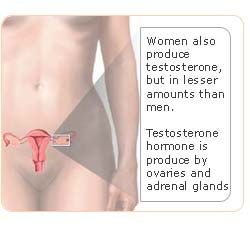A population-based investigation of adult women older than 65 years old described the connection between testosterone levels and hemoglobin levels. This was performed to establish the risk of developing anemia within 3 years associated with low testosterone levels.
Below normal testosterone levels could be a significant factor for anemia that has been generally neglected according to Dr. Luigi Ferrucci, from the National Institute on Aging in Baltimore, Maryland, and colleagues confirm in their study.
In the past, various investigations pointed out that there might be a relationship between testosterone and anemia. Thus Dr. Ferrucci and colleagues research the available information to carry out their study.

The specialists considered previous knowledge acquired from the World Health Organization, which asserts that anemia is caused by deficiency of iron, vitamin B12, and renal insufficiency.
After age 50 years, anemia prevalence rates elevates rapidly, to a rate greater than 20% at age 60 and older.Overall, 10.2% of women 65 years and older were anemic. Of older women presenting anemia, evidence of nutrient deficiency was present in one third; and anemia was present in one third. Most reports of anemia were mild; 2.8% of women.
The research performed by Dr. Ferrucci is founded on an Italian population-based data, in which testosterone and hemoglobin levels were computed in a representative sample of 905 older adults, 65 years of age or older, who were free of cancer, renal insufficiency or anti-androgenic treatments. Hemoglobin levels were reassessed 3 years later.
Amid those without anemia at baseline, women with low versus normal total testosterone had a considerably higher risk of showing anemia at 36 months follow-up, independent of confounding variables. The virtual risk of becoming anemic was 2.1 for low total testosterone.
Below normal testosterone levels in women are associated with a higher risk for anemia, and the link is stronger as testosterone Levels are lower. Besides age, total testosterone levels were linearly linked with hemoglobin levels.
Besides the statistically significant link between low testosterone level and lowered hemoglobin level, many old women with low testosterone levels were not anemic and many of those who were anemic had testosterone levels in the healthy range. So, testosterone levels may be associated with anemia, but it is not a crucial caused for this disease.
Finally, anemia is recurrent, though not severe, in older women with low testosterone levels. However, in most cases of anemia, low testosterone is just one of numerous factors.